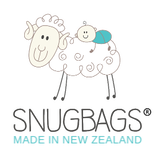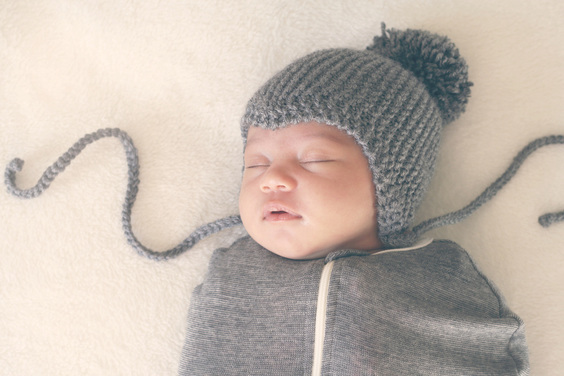|
An Internationally Certified Lactation Consultant, infant massage instructor and best-selling baby care author, Pinky McKay is the author of 4 books, including ‘Sleeping Like a Baby ‘ which offers research, evidence and gentle sleep solutions from birth to three years Pinky McKay tells that she believes it’s important to look at reasons why babies and toddlers are waking and address those, rather than use a one-size-fits-all approach. She says, “By seeing your baby’s waking as an expression of a genuine need, rather than ‘bad behaviour’ you are likely to remain calm and this will help your baby develop a positive association with sleep and bedtimes – which is more helpful in the longer term”.
Some reasons babies wake and what to do Hunger: Is your baby feeding well during the day or is he distracted? Is he experiencing a growth spurt and corresponding appetite increase? Or have you been advised to space out feeds? Your baby needs a certain amount of food in a 24 hour period so if you restrict feeds during the day, he will wake more at night to get his quota. It’s normal for babies to need night feeds throughout the first year – this can be influenced by mother’s milk storage capacity if she’s breastfeeding, baby’s activity levels (imagine the calories burned by a crawling baby!) and growth spurts. What helps: Try offering your baby extra feeds in a quiet space during the day and for older babies and toddlers, try an evening snack of carbohydrate foods such as oats or yoghurt and banana – bananas are rich in tryptophan, a precursor to serotonin which is a calming chemical that encourages sleep. Food intolerance: Food additives are present in ever-increasing numbers in almost all processed foods and these can dramatically affect sleep patterns. Some babies and toddlers can also become restless after eating foods containing salicylates. These are naturally occurring chemicals which are found in otherwise healthy foods such as berries, grapes, apples, citrus and tomatoes, as well as in some processed foods. What helps: If you suspect foods in your diet may be making baby unsettled, keep a food diary – jot down what you eat and times on one side of the page and your baby’s unsettled/wakeful times on the other. See if there is a connection and eliminate the suspect foods for a week. If you suspect dairy is a culprit, you will need to eliminate all dairy (milk, cheese, yoghurt) for at least two weeks as it can take some time for any gut damage to heal. If you are breastfeeding you will need to eliminate suspect foods from your own diet too. Teething: Although you are sure to be told by someone that teething has no side effects, some babies and toddlers seem to have an awful time, especially as they cut molars. The first set will usually appear between 12 and 18 months and the ‘two year old’ molars can erupt around two but for some children this may be a bit sooner or as late as almost three years. What helps: Lying flat means more circulation to the head and jaw area and this can create more pressure and pain for teething infants. There is also more saliva during teething to gag on and cause waking. A simple solution is to elevate your baby’s head – either with a folded towel under the mattress or, if you have an older toddler (over 18 months) and feel comfortable about his safety, you can give him a small pillow (try this during the daytime to see how he manages). Separation anxiety: As he moves through developmental stages from crawling to walking to running and developing language, your baby’s world is expanding at an incredible rate. This can be overwhelming so it’s natural for him to want to be close to his secure base – you! Also, when you have a baby, you are constantly attending and responding to their needs. As these needs become less intense when your baby becomes a mobile toddler, it’s easy to let him ‘get on with it’. This is fine but it can mean that without little refills to his emotional tank through the day (cuddles, eye contact and focused attention), he will express a stronger need for connection at bedtime. He may also be experiencing separation (such as childcare) for the first time, so it is perfectly natural for him to want to catch up on time with you at bedtime. What helps: Be patient with your clingy baby – pushing your child beyond his limits will usually result in more clingy behaviour. Sit in your toddler’s room and cuddle or hold a hand on him as he falls asleep – this will elicit relaxation hormones that will help him reach a deeper sleep. Please don’t try to force your baby or toddler to self-settle before he is ready as bedtime should be a calm and welcoming space, not a time of stress. Not only does a stressful bedtime make little ones even more resistant to going to sleep in the first place, it can result in them waking more due to elevated stress hormones that make it difficult to relax and sleep soundly. Try to see the time spent helping your little one fall asleep as an investment in your relationship as well as a healthy way to encourage sound sleep. My baby wants to breastfeed or rock to sleep: Rocking is a very natural intuitive way to calm babies. Some babies crave more movement and sensory stimulation than others and this is important to brain development. Falling asleep on the breast is one of the easiest ways for most babies to settle. This is due to hormones released while your baby feeds but if you are concerned about it becoming a habit, alternate feeding with other sleep cues. What you can do: As baby grows, you can make changes, gradually with love, by playing some calming music on a low volume as you rock or feed him to sleep in a dimly lit room. After a week when your little one is conditioned to the music, you can gently remove him from the breast or stop rocking when he is drowsy and cuddle him to sleep. Eventually, he may fall asleep in his bed with the music playing.
0 Comments
Your comment will be posted after it is approved.
Leave a Reply. |
Author
Kim is the owner of SNUGBAGS - Merino for Kids. Together with her partner James and their little girl Neeva Rose, she lives in a little beach town called Piha on the West Coast in New Zealand. They love surfing, building sandcastles and all things natural and organic. Categories
All
Archives
October 2021
|
|
Online shopping with us
> Shipping > Guarantee & Returns > Product Videos > SNUGBAG selector tool > Privacy policy > Farm to SNUGBAGS |
Our Products
> Our Merino > Our Organic Cotton > FAQ > Washing & Care > Pediatrician Endorsed > Intellectual Property |
Customer Service
NZ: 0272 761175 Int: +64 272 761175 [email protected] > Contact Us > Our Journal > Become a VIP! |
© copyright 2022 SNUGBAGS


 RSS Feed
RSS Feed
